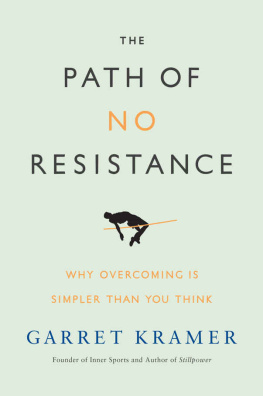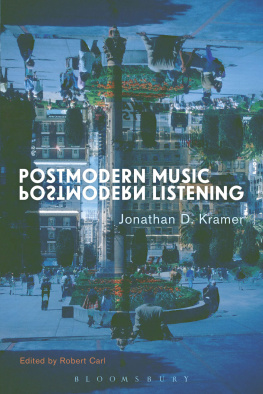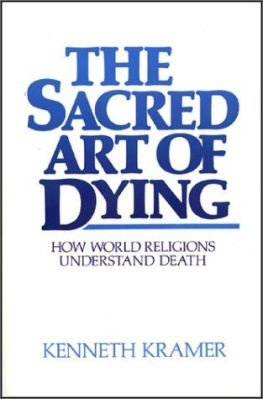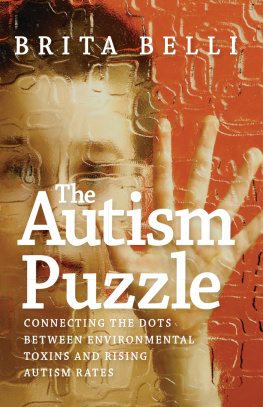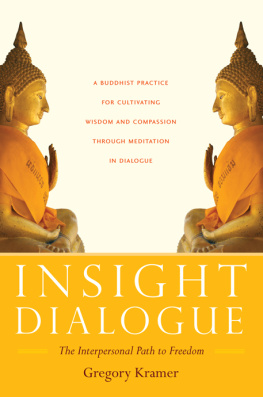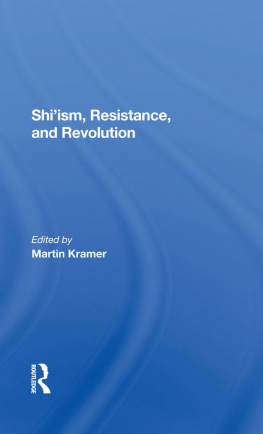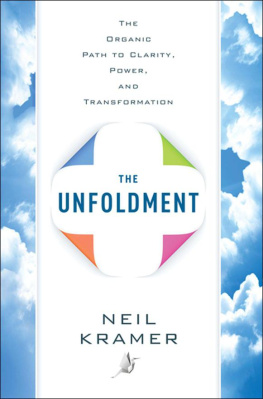This book is intended as a reference volume only. It is sold with the understanding that the publisher and author are not engaged in rendering any professional services. The information given here is designed to help you make informed decisions. If you suspect that you have a problem that might require professional treatment or advice, you should seek competent help.
Published by Greenleaf Book Group Press
Austin, Texas
www.gbgpress.com
Copyright 2015 Garret Kramer
All rights reserved.
No part of this book may be reproduced, stored in a retrieval system, or transmitted by any means, electronic, mechanical, photocopying, recording, or otherwise, without written permission from the copyright holder.
For permission to reprint copyrighted material, grateful acknowledgment is given to: SONY/ATV Music Publishing LLC: Lyrics from Let It Be, written by John Lennon and Paul McCartney. Copyright 1970 by Sony/ATV Music Publishing LLC. All rights administered by SONY/ATV Music Publishing LLC, 8 Music Square West, Nashville, TN 37203. All rights reserved.
Distributed by Greenleaf Book Group
For ordering information or special discounts for bulk purchases, please contact
Greenleaf Book Group LLC at PO Box 91869, Austin, TX 78709, 512.891.6100.
Design and composition by Greenleaf Book Group
Jacket design by Yoori Kim
Cataloging-in-Publication data is available.
Print ISBN: 978-1-62634-117-3
eBook ISBN: 978-1-62634-118-0
eBook Edition
For Ryan, Jackson, and Chelsea
CONTENTS
AUTHORS NOTE
T his book represents my understanding about what makes human beings resilient, content, productive, and loving. Its based on my personal learning, teaching, writings, and talks. For the most part, my evidence is anecdotal. My opinions, however, are the result of years of observation and practice. Ive witnessed a multitude of individual transformations, including my own, that point me in the direction you will soon learn about.
In The Path of No Resistance, I explore what you need to know in order to overcome anything that life throws your way. And, more important, what the implications of this knowledge mean for your ability to contribute to, and not take from, the world in which you live.
For now, heres my simple request: Set aside the current ideology about human behavior that you think is truestart fresh. Then, read this book and reflect on the possibilities that it offers. My hope is that the following words uncover a path from which new insights and inspiration will flourish. Id like you to enjoy the trip as well.
With all my encouragement and supportlets get going!
Garret Kramer
New Vernon, New Jersey, USA
DEFINITION OF TERMS
M ost of the definitions that follow are my attempt to use words to describe formless entities. They should simplify your read through this book.
A Principle: A truth.
Mind: The spiritual source of energy that powers the human brain.
Consciousness: A level of understanding and awareness that brings ones reality to life.
Thought: The creative agent that forms a persons reality moment to moment.
Insight: An answer, solution, or new thought that springs from a persons inner wisdom or intuition.
Feelings: An inborn barometer of a persons thinking; an intuitive guide.
Feeling State: Mind-set, state of mind, mood, mental state, well-being, and psychological perspective, are interchangeable words used for this term.
Inside-Out: The natural fact that a persons thinking and mood create his or her experience.
Outside-In: The illusion that a persons experience creates his or her thinking and mood.
Thought-Feeling Connection: The natural fact that human beings live in the feeling of their thinking.
Psychological Immune System: The minds innate ability to self-correct to clarity.
Paradigm: An exceptionally clear principle-based framework.
The Path of No Resistance: Look insideits there.
May your past be the sound of your feet upon the ground, carry on...
Jeff Bhasker, Andrew Dost, Jack Antonoff, Nate Ruess
INTRODUCTION
The Golf Channel once interviewed a ten-year-old girl who qualified for the US Amateur Championship. The host asked questions such as: What are your expectations going into the tournament? Whats the best part of your game? What are your goals in golf? How do you deal with pressure at such a young age? The young golfers response to every question was: I dont understand what you are asking. The host, figuring that the girl was too young to comprehend his words, rephrased the questions using more basic language. Her response this time: I understood the words, just not their connection to playing golf.
H eres a line of inquiry that youve probably never considered: What do we really see, and then experience, as we look outward? Do we experience our circumstances: the world around us, our family, our finances, our job, our friends, the weather? Or does the nature of our perceptions and experiences come from somewhere else? It goes without saying that each of us has looked at a specific circumstance in our life and experienced a low or worrisome feeling. But then we looked at the same circumstance later on, and wondered what in the world was troubling us in the first place.
So, can it truly be our circumstances that account for how we feel? Do our circumstances really need to be confronted and overcome? I realize that well-meaning friends, family members, teachers, coaches, therapists, and self-help gurus bombard us with coping mechanisms to use when it seems like life makes us feel low, but are they necessary? Do they even work? Can the world make us feel a certain way? Again, if our circumstances have the power to raise or lower our moods, wouldnt the same circumstances make us feel happy or sad every time we experienced them?
I told you these questions were different.
But if its not the situation on the outside that determines the quality of our experience and level of inner peace on a moment-to-moment basis, then what is it? And why is the answer to this question so important? Youre about to find out.
In my many years of consulting with athletes, coaches, parents, teachers, and business leaders, Ive found that those people who understand that their experience is not created from the world outside (such as the young golfer I mentioned at the outset) are the ones who consistently rise above what others would define as difficult circumstances. Theyre the ones with an innate fortitude, who refuse to play the victim. Theyre the ones who sail along the path of no resistance.
Thats the why its so important part.
Now to the question of why our perceptionsand thus our experienceof the same circumstance vary. Why does my wife do something one day and it irks me, but then on another day she does the same thing and I find it endearing? Why does your boss or coach seem like a monster during one encounter, but then in the next, seem kind and compassionate? Why do you get cut off on the highway and feel angry and vulnerable, but then get cut off again and feel sorry for, or even concerned about, the other driver?
The answer to these questionsan answer that most people are missingis this:
We dont live in the feeling of our circumstances. We live in the feeling of our thinking, and our thinking is always in flux.

